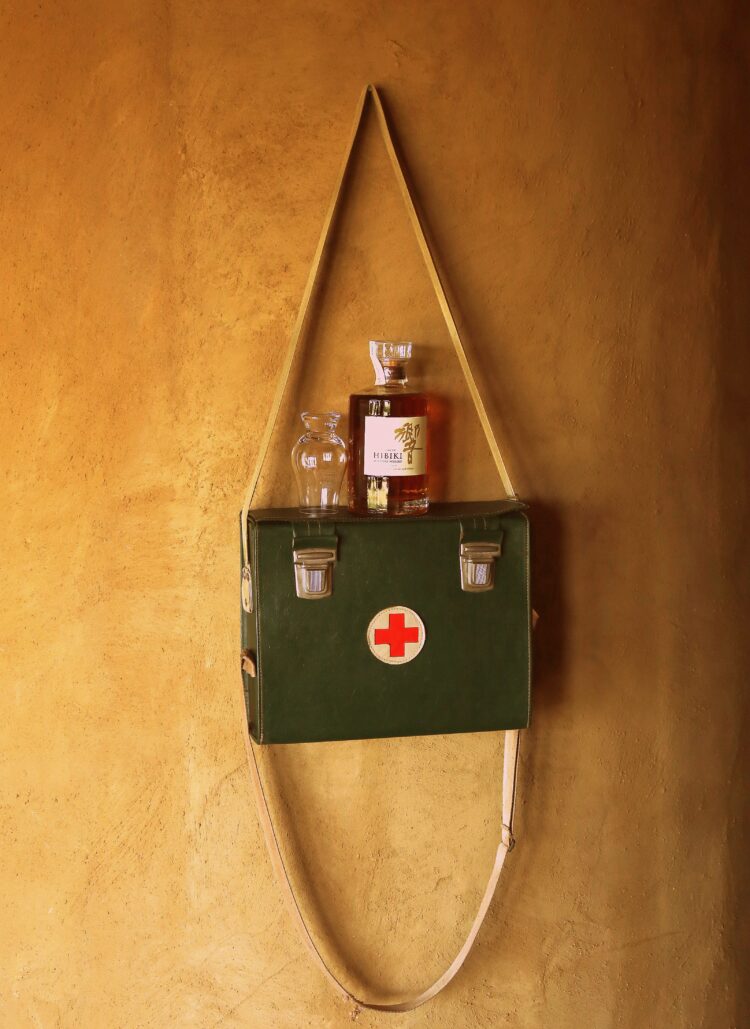WORDS: TAMARA WELSH | Western Herbal Medicine Practitioner
Having a few simple herbal remedies on hand during the cooler months can make a big difference when those colds and flu’s come knocking at your door. Intervening early is key when warding off winter bugs with herbal medicine so make sure you’re prepared and your home apothecary is stocked!
Echinacea extract
Most people have heard of Echinacea, even if they’re not used to using herbal medicines. It truly is a remarkable herb when it comes to our immune system. There are three species of Echinacea commonly used medicinally; Echinacea angustifolia, E. purpurea and E.pallida and the roots are considered the most active part. Studies have shown that cells exposed to Echinacea have a faster response when they receive an immune threat (1). It therefore makes sense, that Echinacea can be used as both a preventative and treatment medicine when it comes to infections. Personally, I think a bottle of Echinacea extract is a must for any home first aid kit. It can be taken at a maintenance dose throughout the cooler months if required to help prevent sickness and the dose can be increased if you are fighting off a bug. It’s also a safe herb for children.
Elderberry syrup
Sambucus nigra fruit or Elderberry is a delicious tasting berry with flu fighting abilities to boot. Elderberries are rich in anthocyanins and have been shown to substantially reduce the duration of upper respiratory symptoms (2), particularly the common cold. Elderberries have historically been used to make preserves, cordials and wines. They can also be taken as a fluid extract, as lozenges or in a syrup, the latter being popular for children (and adults!). I am hoping to make up a batch of Elderberry syrup for the Ahara Health dispensary so be sure to keep an eye on our socials for its arrival.
YEP tea
YEP stands for Yarrow, Elder, Peppermint. These three herbs when combined and drunk warm as a tea are an herbalist favourite when it comes to helping the body to control a fever. These herbs are diaphoretic which means that they promote sweating allowing the fever to ‘break’ and therefore recovery to begin. YEP tea is an easy blend to have on hand for anyone in the household who is in the chill phase of a fever.
Ginger
The ginger rhizome is the ultimate winter herb! A cup of ginger tea is warming, nourishing and delicious. Ginger is a circulatory stimulant i.e. it helps to bring blood to the peripheries warming cold hands and feet and like YEP tea, helps to promote sweating and break a fever. Ginger is warming and stimulating to our digestion system helping to ease nausea and calm cramping. It is also a potent anti-inflammatory and anti-viral substance. Add ginger to your meals, in soups and stews. You can juice the rhizome and create lovely drinks or enjoy simply as a warm tea- a hug in a cup!
Calendula infused oil
One of my all-time favourite herbal-infused oils would have to be Calendula. It is just so versatile. Calendula is soothing and nourishing to the skin so it works well as a moisturiser in winter. It also has antimicrobial and antifungal properties so it’s great for things like nappy rash, cuts and scrapes, rashes and minor skin infections. If made and stored correctly, herbal-infused oils can last many months and are a really useful addition to the home first aid kit.
If you’d like to stock your winter apothecary so you are ready for the cooler months, come in and see us at Ahara Health! Make sure you book in advance even if you’re just dropping in for a dispensary pick up. If you need a bit of time to chat about what is right for you, we offer short acute appointments to get you sorted. Bookings are best made on our website.
References
- Matthias A, Lehmann RP, Bone KM. Echinacea in Health – Risks and Benefits. In: Watson, R, Preedy V (eds). Botanical Medicine in Clinical Practice. CABI, Wallingford, UK, 2008
- Hawkins, J., et al., Black elderberry (Sambucus nigra) supplementation effectively treats upper respiratory symptoms: A meta-analysis of randomized, controlled clinical trials. Complementary Therapies in Medicine, 2019. 42: p. 361-65
